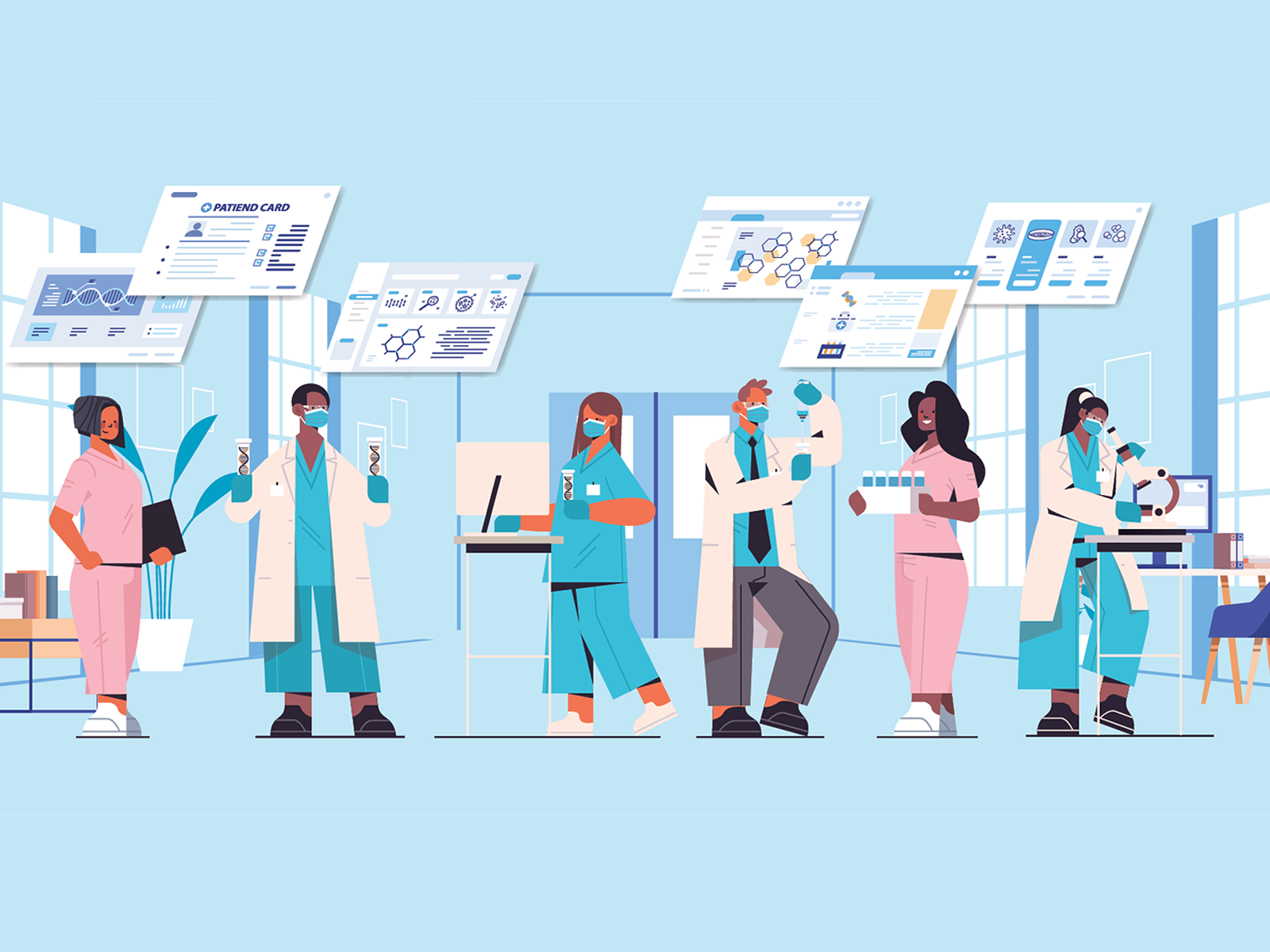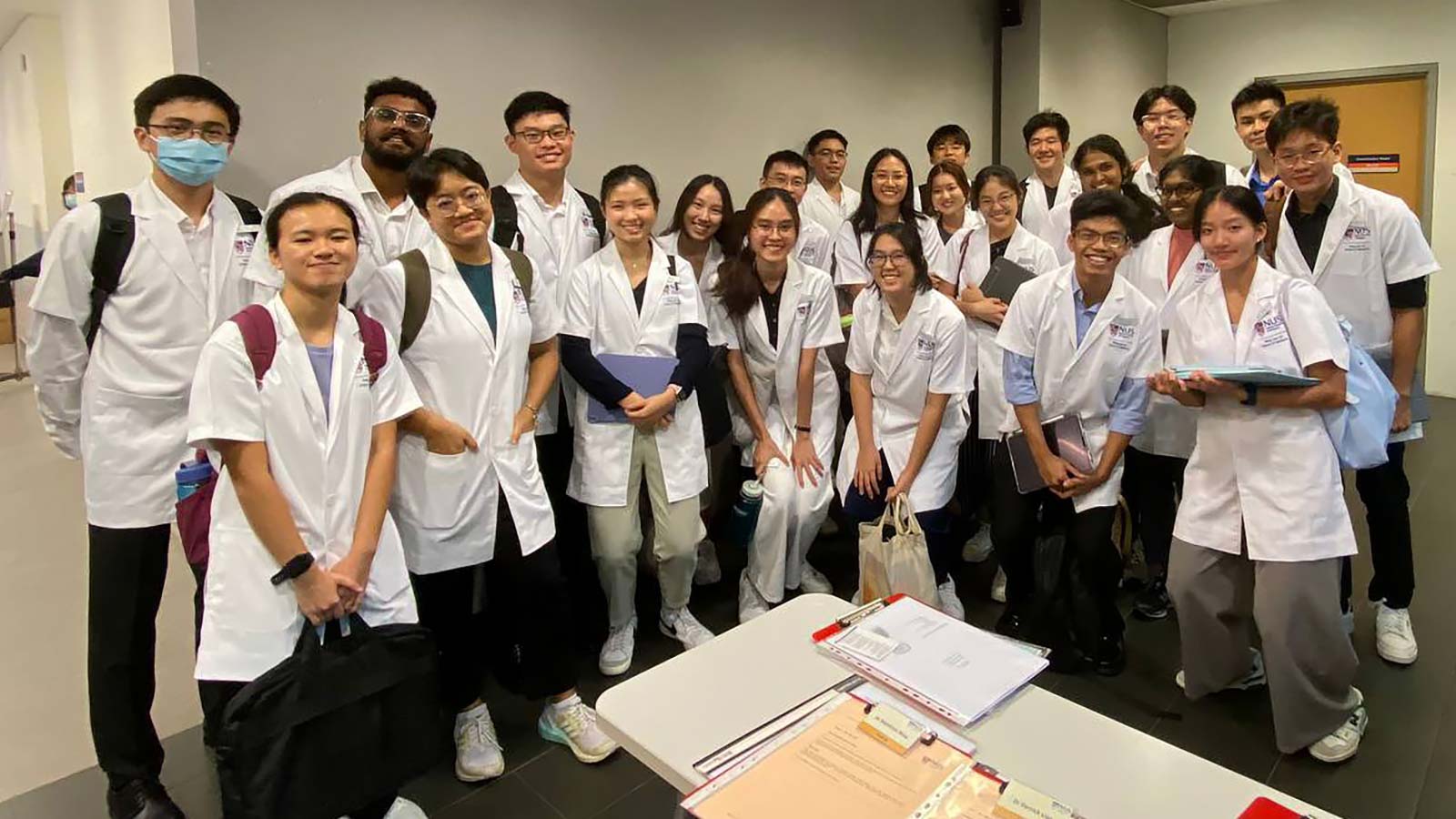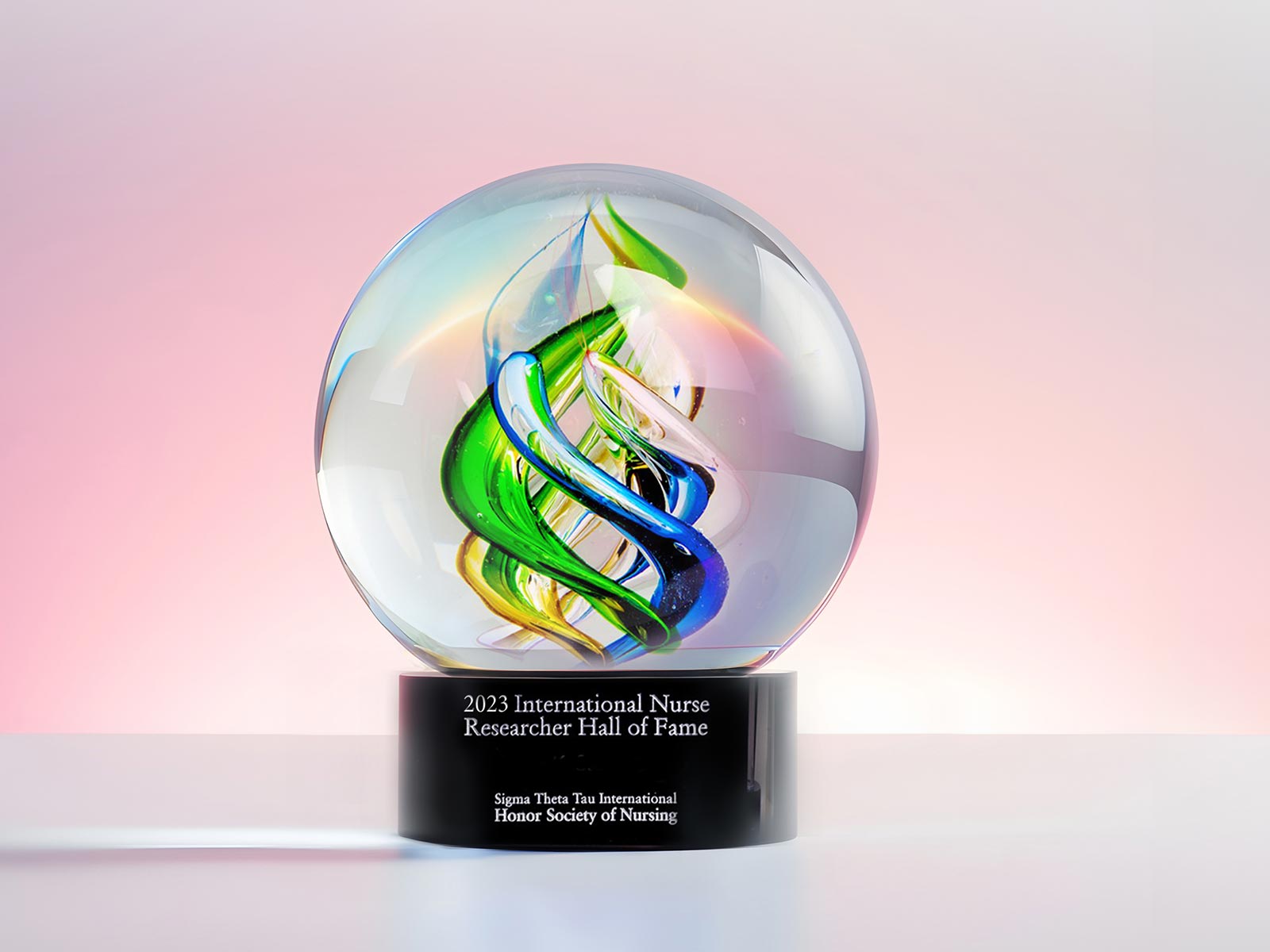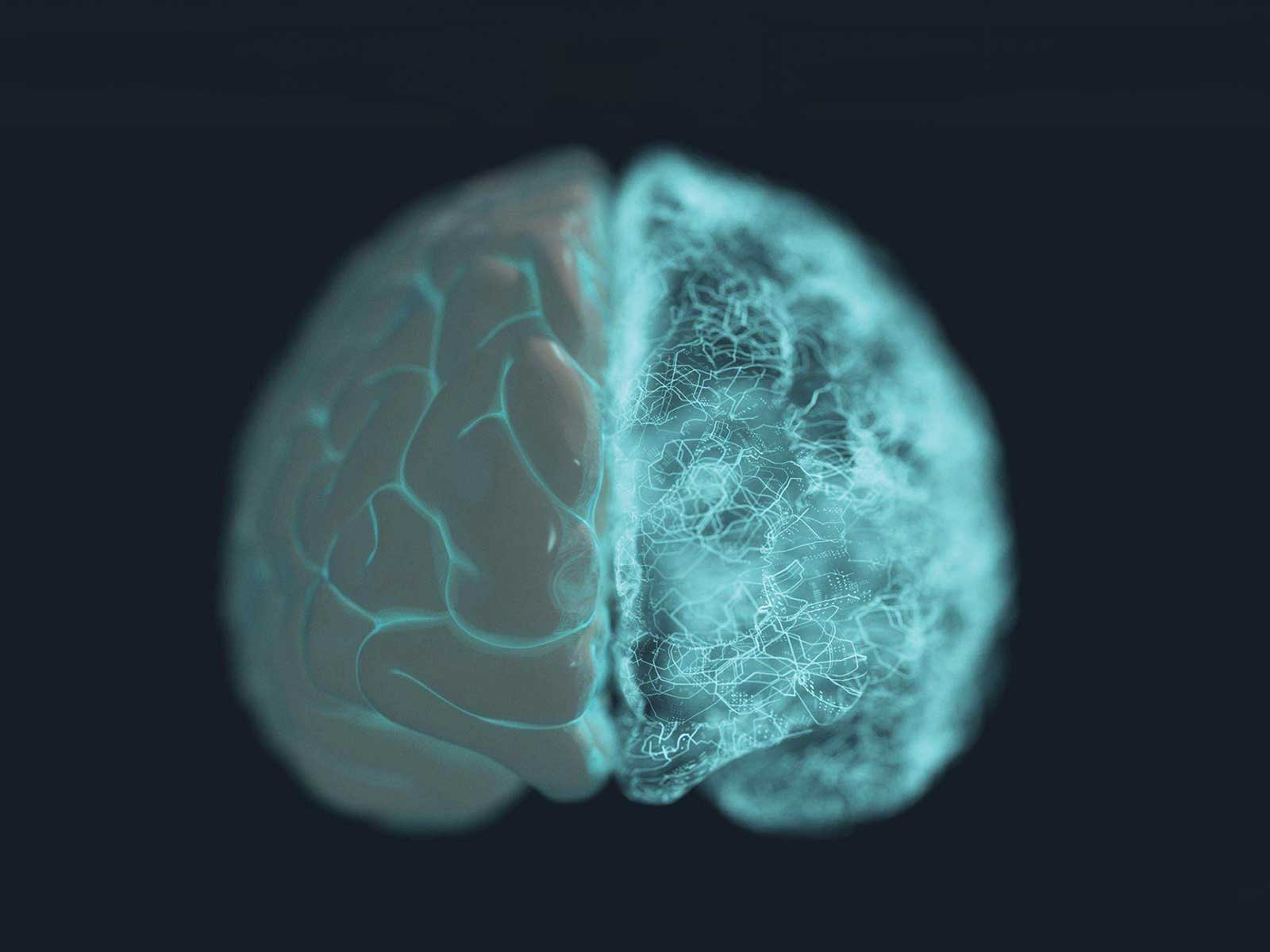95%
students agreed or strongly agreed that they felt confident in taking basic history, in developing an approach to the symptom covered, and in demonstrating clinical reasoning

Issue 51
Aug 2024
ALL IN THE FAMILY
By Dr Tan Hwei Ming, Family Physician and Associate Consultant, National University Polyclinics

History and Clinical Reasoning (HCR) is a new programme based on Simulated Patient (SP) methodology1. It was first introduced to pre-clinical students of the Yong Loo Lin School of Medicine, National University of Singapore (NUS Medicine) in November 2023 to teach clinical reasoning and communication skills. The programme spans the first 2 years of medical school, with students having regular learning opportunities to take a history from SPs and to practise their communication skills and emerging clinical reasoning skills.
Over years of clinical practice, expert clinicians develop illness scripts and mental models of medical conditions that help them to solve complex medical problems and identify atypical situations. These illness scripts are refined over time and involve the integration of their knowledge of anatomy, physiology, microbiology etc., with clinical information and observation.
Historically, medical school training has tended to begin with the study of the basic sciences in the pre-clinical years. It was not uncommon (indeed, it was almost de rigueur) for pre-clinical students to question the relevance of anatomy, physiology and even microbiology early in their professional journey!
The HCR was implemented in Academic Year 2023/2024 (AY 2023/2024). This is an SP-based history taking and clinical reasoning module that runs alongside basic sciences modules. The aim is to facilitate the integration of basic sciences knowledge with (nascent) clinical knowledge. We hope that by doing so, our students will begin to acquire an early repository of illness scripts by which to gradually hone their clinical reasoning skills.
The HCR sessions are designed to coincide with system-based basic science blocs spread across the first 2 years of medical school. Within each system bloc, students learn the basic sciences pertaining to the particular body system. This includes exposure to related components such as embryology, anatomy, physiology, pathology and pharmacology.

Our inaugural batch of students at their first HCR session.
Material for HCR sessions was developed and curated in consultation with basic science educators and practising clinicians. Each HCR session, paired with its partner system, is designed as an experiential learning session and is built upon a selection of cases containing the common system-related symptom presentations.
Prior to each HCR session, students work through the relevant learning material, including the pathophysiological basis and clinical relevance of symptoms as well as a targeted guide for history-taking. During the session, students take a history from the SP and practise their emerging clinical reasoning skills by formulating and justifying their list of differential diagnoses. They are guided to make links between the role-played clinical presentations and their basic sciences lessons. Feedback is provided for their communication, history taking and clinical reasoning skills and they are encouraged to reflect on their learning.
At the time of writing of this article, the inaugural batch of first year students has completed their HCR programme for Year 1. Feedback has been encouraging.
Students agreed or strongly agreed that they felt confident in taking basic history (n=230, 95%); they were more confident in developing an approach to the symptom covered (n=230, 95%) and were more confident in demonstrating clinical reasoning (n=230, 95%). Most students reported an enjoyable experience, citing reasons such as having good tutors, learning to develop a structured approach to history-taking, strengthening communication skills, building confidence in clinical training and appreciating the clinical relevance of history-taking and learning the basic sciences.
The experience was similarly pleasant for the tutors, who cited the active participation of enthusiastic students. Tutors also highlighted that the students interacted well with the SPs and found that the session was useful to guide the history-taking and clinical reasoning process. They also found that such sessions were useful in addressing gaps in students’ learning.
The team also had the privilege of having a visiting professor from the University of Zurich, Professor Ralph Schimmer. His very encouraging comment was that “if this is now continuously repeated and expanded over all subjects to be studied, I truly imagine these young colleagues to be at a different level of professionalism and competence at the beginning of their residency compared to previous generations.”
Early clinical practice via SP-based history-taking sessions strengthens confidence in history-taking and communicating with patients, and engenders relevance and importance to basic science learning. The team has had a rewarding experience and looks forward to implementing the second year of HCR!
Here are some comments from our students:
I personally think that FCP HCR has been one of the more useful lessons we have in M1.”
It ties in with the theory we have learnt so far in a more clinical setting.”
Fortin AH, Haeseler FD, Angoff N, Cariaga-Lo L, Ellman MS, Vasquez L, et al. Teaching pre-clinical medical students an integrated approach to medical interviewing. J Gen Intern Med. 2002;17(9):704-8.
More from this issue



